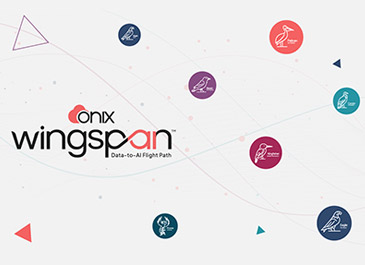Since their inception, legacy data warehouses have primarily existed as on-premises systems within companies. Over the years, these warehouses have evolved from data storage systems into decision-support systems (DSS). Typically, enterprises had many DSS environments to serve selected users or business functions.
As data continues to explode, modern data warehouses are required to support a host of complex functionalities like operational analytics and performance management. Legacy warehouses can no longer support such capabilities. As a part of their infrastructure modernization, enterprises are migrating to a cloud data warehouse to ingest and store real-time data from disparate sources.
It’s not surprising to see the high failure rate among traditional warehouses. According to Gartner, over 50-80% of legacy warehouse projects fail because of poor design, inadequate project planning, and a lack of user adoption.
Now, with Agentic AI shaping the future of data modernization, these risks are being mitigated. Capabilities like ETL orchestration, schema drift detection, query tuning, and anomaly resolution no longer depend entirely on manual effort; they’re increasingly handled by autonomous systems that adapt and improve over time. This marks a more reliable and future-ready path to modern data warehousing.
The set of questions that arises next is this: How can enterprises modernize their data warehouses? Are cloud platforms and Agentic AI the plausible answers? Let’s break this down and understand each topic in detail, because actionable knowledge and insight is what ultimately drives better, faster, and more confident decision-making.
Modernizing enterprise data warehouses on the cloud
Here are some of the latest statistics on modernizing data warehouses:
- 60% of enterprises have chosen warehouse automation as their main approach to modernize enterprise data warehouses (EDWs).
- 37% of enterprises plan to improve their capacity for greater scalability, users, and data analysis.
With EDW modernization, enterprises can overcome a host of challenges associated with traditional warehouses, such as:
- Managing the growing volume and complexity of data in any legacy EDW.
- Providing refined results to business users from data analysis.
- Addressing data quality issues in traditional warehouses arising from data duplication, outdated information, and manual processes.
- Reducing the high costs of maintaining on-premises data warehouses.
As a leading cloud computing platform, Google Cloud supports EDW modernization through scalable infrastructure, robust security, and tools that help optimize cloud costs. Here’s how companies can benefit from modernizing their data warehouses on Google Cloud:
- Intelligent decision-making
With its inbuilt AI and ML capabilities, Google Cloud can help enterprises reduce data silos and transform data for real-time decisions, which can boost business growth and user experience. - Team collaboration
By migrating to Google Cloud, enterprises can now integrate communication channels like online chat, emails, and video conferencing, thus facilitating a unified cloud platform. Additionally, by integrating Google Workspace, they can enable document sharing with a zero-trust security approach. - Multi-cloud infrastructure
Google Cloud’s support for multi-cloud infrastructure enables companies to avoid vendor lock-in and accelerate their modernization process. Cloud adopters can now run their workloads at any suitable location around the globe, thus benefiting from high throughput and lowest costs. - Data security
To counter the menace of cyber threats, Google Cloud provides a zero-trust security model , giving organizations the tools and frameworks needed to protect their data. Advanced features include secure cloud configurations, policy hierarchies, and security blueprints, helping enterprises implement robust security practices.
While Google Cloud provides the infrastructure, security, and collaboration capabilities needed for modern data warehouses, enterprises can further accelerate their EDW modernization by leveraging AI technologies. Tools like Agentic AI complement cloud platforms by automating complex tasks, uncovering insights faster, and enabling smarter, real-time decision-making.
Role of AI in EDW modernization
There’s no doubt that AI technology is transforming data warehouses through capabilities such as automatic data ingestion, optimized data storage, and predictive analytics. With AI technology, enterprises can quickly process massive data volumes to extract real-time insights. Similarly, machine learning models can streamline data governance and detect any anomalies.
According to McKinsey, data-driven companies can leverage AI to automate almost 70% of their data processing tasks. Going by this 2024 McKinsey article, by the year 2030, most companies can achieve “data ubiquity,” where data will be embedded into enterprise systems, processes, digital channels, and decision points.
Going forward, there will be a surge in the demand for AI-enabled real-time analytics that can provide instant insights into market trends, customer behavior, and operational efficiencies.
With AI-driven enhancements, enterprises can modernize their data warehouses in the following ways:
- Automated data ingestion – with optimized workflows that reduce manual operations and improve data quality.
- Intelligent query optimization – where ML algorithms can improve query results by predicting optimum execution pathways.
- Real–time analytics – where AI-powered models can improve query performance and predictive intelligence for more accurate insights.
- Data quality and governance – with AI-enabled automated governance for detecting any anomalies and implementing security policies.
How Onix’s Agentic AI platform can power EDW modernization
The Onix Birds have entered their next evolution, transforming into intelligent agents powered by Agentic AI. Wingspan is now the single integrated platform that brings together our proprietary IP, Eagle, Raven, Pelican, Kingfisher, and more under one canopy. Onix is set to transform the EDW modernization process. This innovative AI platform delivers exceptional results by integrating the following tools:
- Eagle is the data warehouse assessment tool useful for planning data migration and modernization.
- Raven is the automated code conversion tool that accelerates cloud migration.
- Pelican is the AI-enabled data validation and reconciliation tool used to ensure high-quality data.
- Kingfisher is the synthetic data generator tool used to train AI models for the best results.
As a long-standing Google Cloud partner, Onix can help you modernize your legacy warehouses on cloud platforms, including Google Cloud. In our latest eBook, “Redefining the future of data warehouses through cloud migration and modernization,” we explore how Agentic AI can boost the impact of warehouse modernization.
Download this eBook today – and get in touch with our AI experts.
Reference links:
Avoiding Data Warehouse Failure
EDW Modernization – A Practical Approach to Implementation
Integrating AI with Data Warehousing
Charting a path to the data- and AI-driven enterprise of 2030









